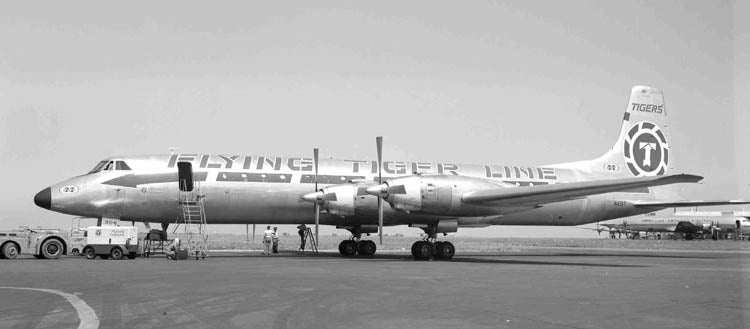FedEx will close its heavy maintenance hangar at Los Angeles International Airport next summer and consolidate operations in Indianapolis to reduce costs, ending a piece of aviation history rooted in the acquisition of Flying Tiger Line 35 years ago.
The company said the decision to terminate maintenance activity at the LAX hangar was triggered by the expiration of the lease in June 2024, creating the opportunity to gain cost savings by combining resources at the Indianapolis hub.
The LAX hangar predominantly worked on McDonnell Douglas aircraft. With FedEx (NYSE: FDX) in the process of retiring 58 MD-11 tri-engine jets after phasing out the last MD-10s in December, there is less of a need for that type of maintenance, said spokesman Jonathan Lyons.
The sprawling 950,000-square-foot maintenance facility at LAX performed much of FedEx Express’ major service, repairs, overhauls and equipment upgrades — routine and unscheduled. FedEx conducts maintenance at numerous facilities around the world, but only a handful, including at the global hub in Memphis, Tennessee, do the deep inspections of aircraft parts and heavy maintenance checks that involve taking apart the aircraft.
“FedEx regularly evaluates its networks and makes adjustments to enhance service, improve operational efficiencies, and lower the cost to serve. Upon expiration of this lease agreement, FedEx Express plans to discontinue use of the facility at 7401 World Way West and will move the heavy maintenance capability to our Indianapolis hub,” FedEx said in a statement provided to FreightWaves. “This adjustment only affects the maintenance hangar facility. FedEx will continue to operate throughout the Greater Los Angeles area. As such, the transition will be seamless to customers, who can expect the same reliable service they receive today.”
The transition will impact about 400 FedEx employees, most of whom are maintenance technicians. The company said it will help affected team members transition to other roles in the company.
A FedEx mechanic posting on Twitter said managers informed workers Wednesday night about the withdrawal from LAX and that it was because the airport authority wasn’t interested in a long-term lease. He said FedEx is offering to relocate them to Indianapolis.

Officials said the closure of the LAX facility improves efficiency as part of the DRIVE initiative that aims to eliminate $4 billion in structural costs by mid-2026 and help FedEx reverse significant profit declines.
Flying Tigers
FedEx acquired Flying Tigers Line, which was formed by World War II fighter pilots, in 1988. The company was also known as Flying Tigers, the nickname for the American volunteer fighter unit that flew in for the Republic of China Air Force to oppose the Japanese invasion of China.
Flying Tigers, the first scheduled cargo airline in the U.S. and a major military charter operator during the Cold War, began commercial operations from LAX in 1945 with 14 Navy surplus Budd Conestoga cargo aircraft and handled its own maintenance there. The first flight consisted of a planeload of grapes shipped from Bakersfield, California, to Atlanta.
In 1949, the U.S. government awarded Flying Tigers the first commercial all-cargo route and 20 years later it received the first trans-Pacific all-cargo route.
Click here for more FreightWaves/American Shipper stories by Eric Kulisch.
RECOMMENDED READING:
FedEx readjusts air network again amid sharp volume declines








Akovia
“Economic climate in California”? Do you mean the 5th largest economy in the world? How is that a matter for “considering”? FedEx didn’t like the deal and figured it was better to dump 400 employees than it was to negotiate a more favorable deal?
George Gewehr
Leaving California is probably the best thing for FedEx. The business environment in that state is horrible. Management said the airport Management didn’t want long term lease. It’s a matter of money, it always is just follow it. See what the airport Management does with the property after it’s vacant. ???
Frank
Personally, I think the move is a smart choice. Indiana is a far greater place to raise a family.
This is of course my opinion. I worked the line in LAX for Fedex and transfered back to Indy when I could. Having spent a little over 17 years with Fedex, I am now retired.
Ivan
Maybe all those newer AMT’s at LAX that were so against unionizing, are having second thoughts now? Ever since FedEx took over Tigers in 1988, all they did was chip away at our benefits. Little by little, they raped the employees, while still expecting them to work, above and beyond their expectations. It’s too bad that UPS didn’t buy us out instead.
Ha
Very very sad to take away your employees jobs when you get a giant raise every year just keep screwing us
Darren T
Sad to see this leave, although considering the economic climate in California, it’s totally understandable. I have great memories of my dad taking me to the Flying Tigers maintenance facility where he worked in the 70s through the early 80s.